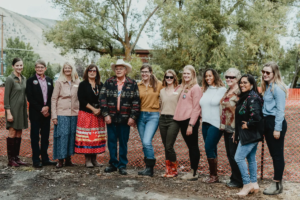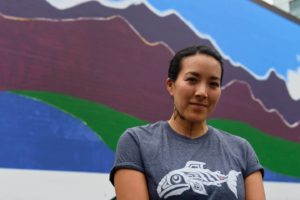SARASOTA – A proposed lynching memorial meant to call attention to the area’s dark racial history has left some in Sarasota frustrated, angry and fearing that it would dredge up the past.
Two times this month, scores of Newtown residents urged city leaders to block the project, saying that such a marker in Newtown would incite division, anger, violence and backlash in the Black community.
“This is like a stick of dynamite waiting for somebody to put a match to it,” said Sarasota’s Living Hope Worship Center Pastor Ruby Robinson, who on Monday urged city commissioners to instead to find a way to commemorate Black history in a more positive light.
“We are supposed to forgive our ancestors for what happened back then,” Robinson said. “We don’t need to drag this up now and leave it in our children’s face for the rest of their lives.”
For years local activists, organizations and historians have worked to unearth and find a way to honor local victims of racial terror. There were at least six known victims of lynching in Manatee County (Sarasota was part of Manatee County until 1921).

“It’s a tough history,” said Vickie Oldham of Newtown Alive, who has conducted a city-contracted research into the history of Sarasota’s Black community and hosts regular trolley tours. “It’s not easy to get on a trolley tour and share it. But we do it because you know what? Today, in this country, people want to hear what happened in America and in communities just like Sarasota all over this country.”
Oldham and a number of other local advocates have been soliciting broad-based support from local organizations and individuals for the memorial. Oldham and others already have installed more than a dozen memorials around town commemorating Sarasota’s rich Black history and its leaders. Lynching is mentioned only briefly on one of them and is also featured on trolley tours.
The effort to bring a lynching memorial is buoyed by the city’s recent agreement to move the historic Leonard Reid house to Newtown to become the first home of the Sarasota African American Cultural Coalition.
The memorial was inspired by the nonprofit Equal Justice Initiative, which has established a National Memorial for Peace and Justice in Montgomery, Alabama. The memorial and museum commemorates the nearly 4,000 people who, by conservative estimates, were lynched in the South from 1877 to 1950.
The Equal Justice Initiative encourages counties represented there to document their lynching histories, gather soil from the actual lynching sites and build community support for a local memorial. In return, the nonprofit promises to provide a replica marker to each county strongly committed to using it both to memorialize those lost and educate present and future generations about this tragic chapter in America history.

Oldham and others are hoping to win the support of the Equal Justice Initiative for the memorial and have garnered the support of 80 organizations, including the city of Sarasota and the NAACP of Sarasota County.
Opponents who spoke on Monday felt that such a memorial would be “disrespectful” and “make a mockery of the Black people” and force generations of residents to relive hundreds of years “bitterness and anger.”
Most pointed to the graphic monuments featured at the National Memorial for Peace and Justice. One sculpture at the museum in Alabama depicts naked enslaved people in chains.
“I don’t want my children coming down that street watching something like that,” said one speaker. “I don’t want to have to explain to them about what happened in the past. We want to let the past go and go on to the future.”
“Let us heal, let us forget and forgive and let that go,” said another.
Valerie Buchand, a longtime resident and Newtown Nation president, said she feared that Newtown residents weren’t involved in the planning process and would be overlooked.
Buchand also took issue over the Sarasota African American Cultural Coalition site, fearing that the museum would feature pictures “that are not so inviting. That history – we don’t need to experience that again.”
Proponents of Sarasota’s memorial say the local monument will have no resemblance to the sculpture in Alabama and would likely be similar to the memorial erected in Martin Luther King Park. Proponents said they have repeatedly spoken to Newtown Nation. They also felt that the scope of the memorial was misunderstood. Its message, they said, would honor and memorialize victims of racial terror.

“Who opposes honoring the memory of these lynching victims?” Oldham said. “Should the ugly past of this beautiful area be forgotten? Do we choose the parts that we remember and hide the rest that we don’t want to remember or do we review all of it soberly and learn from it? Or teach it to the next generation, not repeat it?”
Walter Gilbert is the former president of the Sarasota chapter of the NAACP who now serves as community engagement director for Newtown Alive and Sarasota African American Cultural Coalition.
“As far as forgetting the past, you don’t want to forget the past,” Gilbert said. “Somebody said if you forget your past, you don’t know where you’re going.”
Timothy Fanning covers Sarasota government for the Herald-Tribune. Reach Timothy at tim.fanning@heraldtribune.com or on Twitter: @timothyjfanning. Support the Herald-Tribune by subscribing today.




